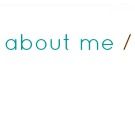At the end of the semester my students filled out a survey-type form with their answers to questions such as:
What was your favorite class activity this semester?
What changes/suggestions/modifications would you suggest to the syllabus?
Would you recommend this course to another student?
The responses were fun and informative to read, and certain trends became evident immediately.
With the exception of a handful of responses like this one:
"My favorite class activity was when you would stand up in front of class and talk and then you would get off subject and end up talking about your sons or food or Corgis and then you'd realize you were way off the subject and somehow tie it all together with the weirdest philosophical sounding statement that seemed in the strangest way to make sense."
Perfect. The line forms here for the Stellar Teaching Awards
But let's go on. With the exception of a few other responses that may or may not also have included the words "weird" and "strange" (Really? I have absolutely no recollection of telling a story about a rabbit) the overwhelmingly favorite activity of my students was the Myers Briggs Type Indicator (MBTI) .
The MBTI is a self-assessment designed to help you better understand your (and others) natural preferences and personality characteristics. It is not a test. I strongly believe that personality cannot be tested. Just the word connotes right and wrong, good and bad, and I think it's perfectly clear to EVERYONE ON THE PLANET that simply telling a story about a rabbit without even knowing it does not make you a bad person.
Or even necessarily wrong.
First, I tell my students that they are all unique and can never be categorized or fit into a perfect descriptive box that represents a particular personality type.
The benefits of taking the inventory are two-fold:
In order to understand yourself better, it's critical to know where your personality tendencies fall in the wide and varied range of types, and even more importantly, to understand others better, it's necessary to recognize that although people may be vastly different from you it doesn't mean they are wrong, or bad or ahem... weird.
Although the MBTI categorizes personalities into a neat 16 types, I make it clear to the students that although their individual analysis may fall squarely into one particular "box" they can also possess traits or tendencies of any the other types. We are nothing if not all gloriously different.
Kind of like back in the 80's when the whole "color analysis" thing was all the rage. You remember how some trained color analysis person (also known as anyone...) told you what colors would look best on you and you were categorized as either a Spring, Summer, Fall or Winter? Personally I really wanted to be a Summer and wear fun! and bright! colors (and be blonde and tall and tan) (because all the Summers on the little pamphlet were tall and blonde and tan) but I was a Fall (these people were definitely not tan), and supposedly I looked best in dull moss green and muted shades of orange? Didn't they know I was an Aggie?
And while some of this was indeed accurate, I was also assured that I might not look absolutely hideous in other colors that did not appear on my Fall Color Chart.
So really, even if you turned out to be a non-Summer like me, with kind of blah-brown hair and you were short and very un-tan, it was still theoretically possible for you to wear shades of aqua on occasion without offending passersby.
This was good to know.
The students love it. (The MBTI, not the color thing.) It helps them recognize their strengths. And what college-age student doesn't need to have their strengths confirmed and celebrated as often as possible? It helps them navigate how best to deal with professors, roommates, classmates and even family members. And that's a very good thing.
Honestly, I encourage everyone to take the assessment. College student or not. Who doesn't occasionally wonder why everyone doesn't see things exactly the same way we do? Who doesn't get frustrated with a spouse or child and would like some insight into how they think or feel? Who doesn't sometimes believe they must be the only strange one in the bunch?
For goodness sake, we all need to know that there are perfectly normal people out there who occasionally tell entertaining stories of little woodland creatures to large numbers of students in lecture halls without being aware they are doing it. And they're not weird at all.
So please. Take it for me.
Have a great day!








No comments:
Post a Comment